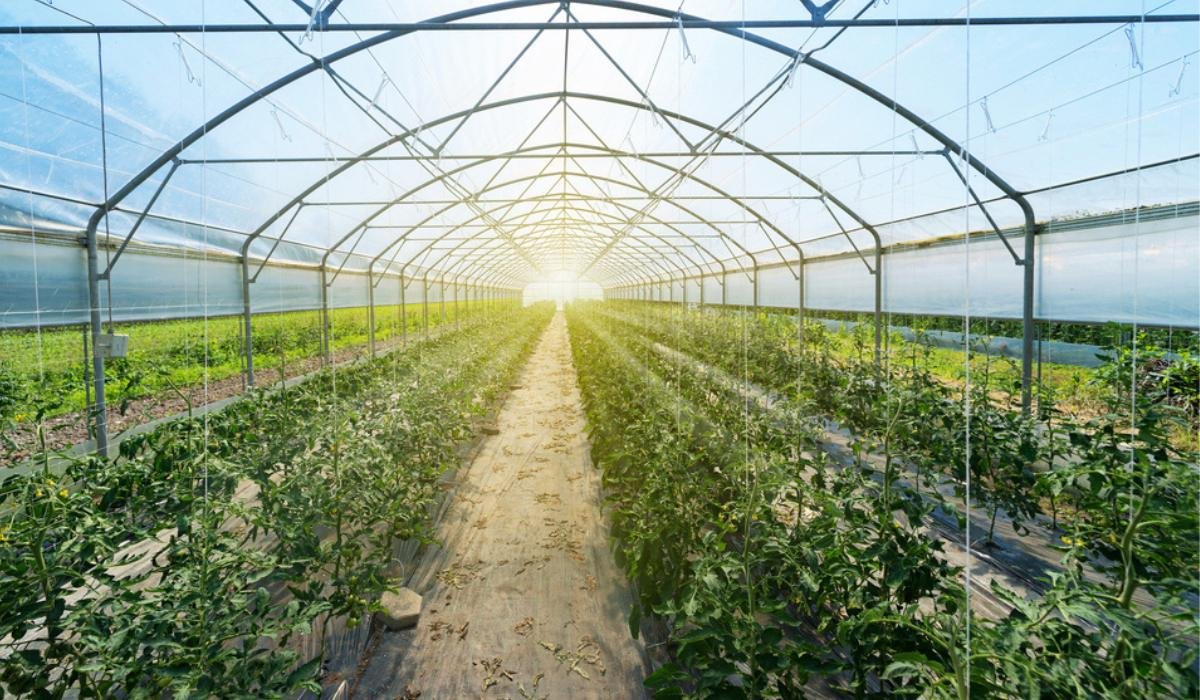Greenhouse Farming: Making Best Use Of Plant Returns and Sustainability
Are you seeking to maximize your plant yields while promoting sustainability? Look no more than greenhouse farming. With regulated atmospheres and reduced water use, greenhouse farming offers the ideal option for year-round manufacturing of fresh produce. By harnessing the power of modern technology and sustainable techniques, you can make sure a bountiful harvest while decreasing your environmental influence. Discover the advantages of greenhouse farming and begin enjoying the advantages today!
Advantages of Greenhouse Farming
Are you questioning what makes greenhouse farming so useful? Well, let me tell you! Among the major advantages of greenhouse farming is the capacity to control the atmosphere in which plants are expanded. With a greenhouse, you can manipulate variables like moisture, light, and temperature to optimize plant development. This means that you can grow crops throughout the year, no matter the weather outside.
Another advantage of greenhouse farming is the decrease in water use. By utilizing water extra efficiently, greenhouse farming assists to preserve this priceless resource.
In addition, greenhouse farming enables better bug and condition management. With the controlled atmosphere, it is simpler to stop and regulate the spread of diseases and insects. This minimizes the demand for hazardous pesticides, making greenhouse-grown crops more secure and much more environmentally pleasant.
Furthermore, greenhouse farming offers protection versus severe weather occasions. Crops grown in greenhouses are protected from heavy rain, strong winds, and hailstorms, which can damage or ruin exterior plants. Monarch Decorative Greenhouse Utah. This protection ensures a more secure and dependable crop return, even during uncertain weather condition problems

Making Best Use Of Plant Returns With Controlled Environments
To maximize plant yields in greenhouse farming, you can accomplish ideal outcomes by managing the setting. By carefully managing variables such as temperature level, carbon, light, and humidity dioxide degrees, you can produce the excellent conditions for your plants to flourish. Among the vital benefits of greenhouse farming is the capability to regulate these environmental variables, enabling you to tailor them to the specific demands of each crop. For instance, you can adjust the temperature level to advertise faster growth throughout the day and lower it a little during the night to resemble natural variations. You can control moisture levels to protect against diseases and make certain proper transpiration. By supplying the correct amount and high quality of light, you can expand the expanding season and boost returns. In addition, by controlling carbon dioxide degrees, you can boost photosynthesis and encourage energetic development. By implementing these managed atmospheres, you can optimize crop returns and attain consistent, premium fruit and vegetables throughout the year.
Promoting Sustainability Through Greenhouse Farming
Make the most of sustainability in greenhouse farming by executing reliable resource management strategies. One crucial element of promoting sustainability is the administration of water use. By carrying out systems such as drip watering and pop over to this site recirculation, you can significantly minimize water waste and make sure that every decrease counts. In addition, utilizing natural and biodegradable materials for pest control and fertilizing can assist decrease ecological impact. Integrated Pest Monitoring (IPM) methods, for example, entail using advantageous bugs to control pests, lowering the requirement for harmful pesticides. In addition, power consumption can be minimized by utilizing renewable resource resources, such as solar panels, to power greenhouse procedures. This not just reduces reliance on nonrenewable fuel sources yet also decreases greenhouse gas emissions. Appropriate waste management is an additional crucial aspect in advertising sustainability. Executing recycling and composting systems can lower the amount of waste sent to landfills while additionally offering nutrient-rich garden compost for plant development. Finally, including sustainable practices in greenhouse style, such as making use of energy-efficient materials and enhancing all-natural lighting, can even more enhance sustainability. By taking on these source management techniques, you can add to a check more sustainable future in greenhouse farming.
Reducing Water Usage in Greenhouse Farming
By implementing effective water management techniques, you can dramatically reduce water use in greenhouse farming. Furthermore, surveillance and controlling the humidity levels inside the greenhouse can prevent unnecessary water loss. By taking on these water-saving techniques, you can reduce water waste, conserve resources, and produce an extra sustainable future for greenhouse farming.
Year-Round Production of Fresh Create in Greenhouses
Greenhouses offer a regulated environment that enables you to expand crops no matter of the exterior weather condition problems. Greenhouses can be equipped with home heating and cooling down systems to maintain ideal temperature levels for different plants. By implementing these techniques, you can make best use of the productivity of your greenhouse and take pleasure in a steady supply of fresh create all year long.

Final Thought
To conclude, greenhouse farming provides numerous advantages for taking full advantage of plant yields and promoting sustainability. By using regulated settings, farmers can maximize expanding problems and increase performance. Furthermore, greenhouse farming allows for minimized water use, making it an eco-friendly selection. The capability to produce fresh produce year-round in greenhouses guarantees a stable supply of healthy food (Monarch Decorative Greenhouse Utah). On the whole, greenhouse farming is a reliable and lasting approach for fulfilling the demands of a growing populace while minimizing ecological influence.
One of the major benefits of greenhouse farming is the capacity to manage the environment in which plants are grown.To maximize plant returns in greenhouse farming, you can achieve optimum results by regulating the atmosphere. One of the vital advantages of greenhouse farming is the capacity to manage these environmental factors, enabling you to customize them to the certain needs of each crop.By implementing click to find out more reliable water administration strategies, you can substantially reduce water use in greenhouse farming.In verdict, greenhouse farming offers countless benefits for taking full advantage of plant yields and promoting sustainability.